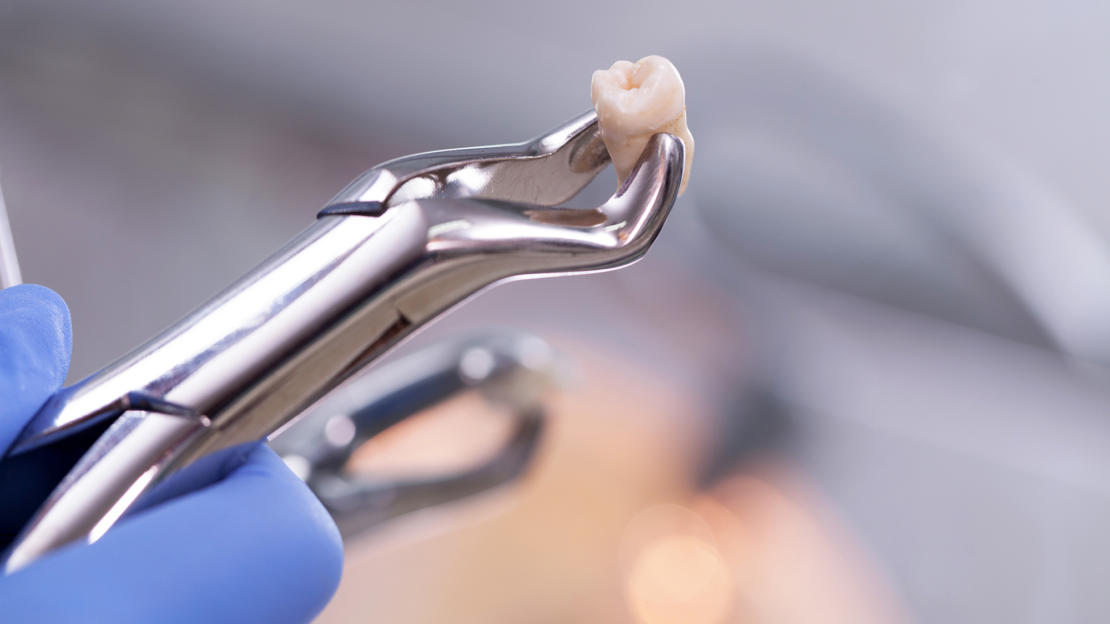What Is A Dental Extraction?
Sometimes, tooth pain can be an indicator that a tooth may need to be extracted. A dental extraction, or tooth extraction, is a procedure where a tooth or multiple teeth are removed from the dental alveolus (socket) in the alveolar bone (jaw). These extractions are used in order to prevent increased tooth damage, infection, and gum disease.

Signs That A Dental Extraction May Be Needed
Tooth pain can be caused by a number of reasons, and even though teeth were meant to last a lifetime, sometimes a dental extraction may be required. Most commonly, a tooth that has been too severely damaged, from decay or trauma, cannot be repaired, so a dental extraction is necessary. A few other reasons include:
Risk Of Infection. -Dental extraction may be required for patients who have a compromised immune system. For chemotherapy patients, patients awaiting an organ transplant, or any other immunocompromised patient, a tooth may be extracted merely due to the risk of infection.
Infection. -An infection can occur if tooth decay has extended to the pulp, the centermost part of the tooth containing the nerves and blood vessels. Bacteria from the mouth can enter the pulp, leading to an infection. Root canal therapy (RCT) or antibiotics may be able to correct certain infections, however, if the infection is too severe, an extraction may be needed to prevent the bacteria from spreading.
Periodontal Disease (Gum Disease). -Periodontal disease, or Gum disease, is an infection of the tissues and bones surrounding and supporting the teeth. If the infection has caused loosening of a tooth or multiple teeth, an extraction may be required.
A Full Mouth. -Sometimes, there are just too many teeth and not enough room for them. Having too many teeth, or large teeth may result in needing a dental extraction to make room in a full mouth.

What To Expect From Dental Extractions

A visit to the dentist can be scary, and sometimes, you’re not entirely sure what to expect. For a dental extraction, a patient will first be given local anesthetic to numb the area of the extraction. This will prevent pain and cause you to fall asleep during your procedure.
A dentist or oral surgeon may need to cut away at the bone and gum tissue from the tooth, then will gently rock the tooth or teeth in order to loosen it from the jaw. If a tooth proves troublesome, it may have to be removed in sections.
Once the tooth or teeth have been extracted, you will be given instructions to care for your mouth. It is critical to follow these instructions carefully to greatly improve the success and speed of the healing. It is important to rest your body after surgery. Sometimes, sutures will be placed in the area of your extraction(s). If this is the case, the sutures will be removed at a future appointment.